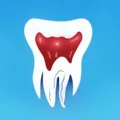Flossing is a health habit that many of us were taught to do routinely. But there has been some debate over the years about whether flossing is truly necessary. So what do dentists recommend when it comes to flossing? Let’s take a balanced look at the evidence.
Potential Benefits of Flossing
Many dentists continue to recommend daily flossing because it can help prevent cavities and gum disease when done properly. Here are some of the touted benefits:
- Removes plaque and food debris between teeth that brushing misses
- Helps prevent gingivitis (inflammation of the gums)
- May reduce tooth decay risk in some people
- Freshens breath by dislodging particles that cause odor
Concerns Over Lack of Strong Evidence
In 2016, the U.S. federal government removed flossing from its dietary recommendations due to a lack of strong evidence that it improves dental health. However, many dentists argue this does not mean people should abandon flossing altogether. The benefits are biologically plausible, even if high-quality clinical trials are lacking.
Tips for Proper Flossing Technique
If you do choose to floss, using proper technique is critical. Here are some tips for good flossing habits:
- Gently curve the floss around each tooth in a C-shape and slide up and down
- Be careful not to snap the floss down onto the gums, which can damage tissue
- Use a clean section of floss as you move from tooth to tooth
- Aim to floss at least once per day, before or after brushing
The Role of Other Oral Hygiene Habits
Along with regular dental cleanings and exams, brushing and flossing make up the foundation of good oral care. If you choose not to floss, focusing on other healthy habits becomes even more important:
- Brush thoroughly twice a day with a fluoride toothpaste
- Clean interdental spaces with items like interdental brushes
- Rinse using an antiseptic mouthwash
- Watch sugar and acidic food/drink intake
- Don’t smoke or chew tobacco products
Practicing a combination of these habits can help minimize tartar buildup, tooth decay, and gum inflammation – with or without flossing.
Should You Floss? Making a Personal Decision
At the end of the day, whether or not to floss is a personal choice that should be made after speaking with your dentist. They can assess your unique oral health status and risk factors. Flossing is just one piece of the puzzle when it comes to your teeth and gums.
Focus on the oral hygiene habits you can consistently follow rather than trying to be perfect. Finding sustainable self-care rituals will serve your health best in the long run.
FAQ
Is flossing necessary?
While flossing is not considered strictly necessary, many dentists continue to recommend it as part of a daily oral hygiene routine along with brushing. The evidence is not conclusive, but flossing may provide added benefits for reducing plaque, tooth decay, and gingivitis.
How often should you floss?
The American Dental Association generally advises flossing once per day. Doing it before bed allows you to clear away food debris and plaque to help prevent issues overnight while sleeping.
What is the proper flossing technique?
Gently curve the floss around each tooth in a C-shape, sliding it up and down along the sides of each tooth. Avoid snapping it down forcefully onto the gums. Use a fresh section of floss as you move from tooth to tooth for best results.
Can you floss too much?
It’s generally not a concern if you floss more than the standard recommendation of once per day. But be gentle with your gums. Flossing too aggressively multiple times per day could cause gum irritation or soreness in some cases.
Are floss picks as effective as regular floss?
Floss picks make it easy to floss, but some dentists argue they may not remove plaque and debris quite as effectively as regular floss. However, floss picks are fine if you use proper technique and they help you build a flossing habit.









